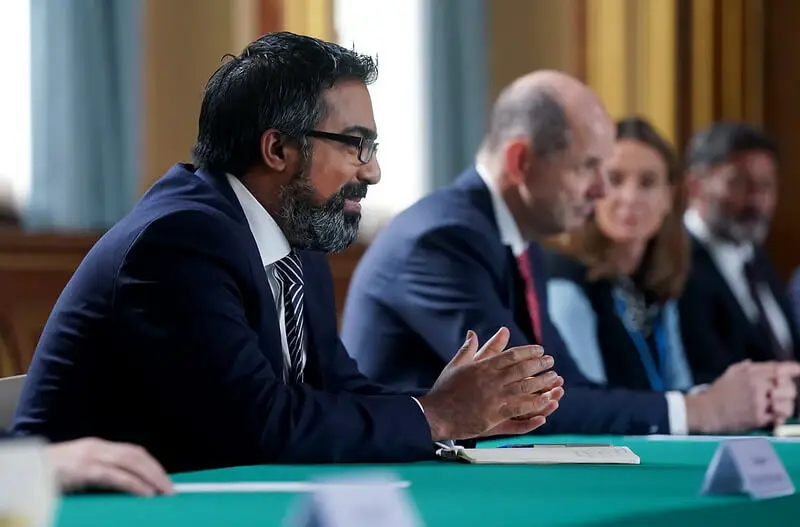The launch of the new Foreign, Commonwealth & Development Office (FCDO) last week provides an excellent opportunity to reset the UK’s economic engagement with low- and middle-income countries.
As the new department takes shape, it is crucial to consider the stated benefits of bringing development and diplomacy together through this merger of the Department for International Development (DFID) and the Foreign & Commonwealth Office (FCO). One area in which the benefits could be large and visible is economic development, but so far there has been little attention to the role of the FCDO as an economics ministry. This is perhaps surprising: DFID is rightly proud of its recent experience in managing economic development programmes such as Trademark East Africa and Nepal’s Economic Policy Incubator.
A new set of essays, published last week by ODI, considers 10 ways the experience of the FCO and DFID could underpin economic policy in the FCDO.
Ten new opportunities for the FCDO
The essays offer 10 economic development proposals for an imaginative new approach to capitalise on mutual interest and help achieve development goals. They are:
1. Publish a coherent UK–Africa strategy
This must help to reinvigorate UK-Africa trade and investment relationships following a decade of stagnation, during which time Africa has stepped up engagement with other parts of the world. Leaving the EU means the UK needs to consider new trading arrangements with African countries, which are set to integrate through the Africa Continental Free Trade Agreement (AfCFTA). The UK-Africa Investment Summit in January also needs follow up. It is time for an ambitious Africa strategy.
2. Coordinate an effective import policy for national security
This is needed to ensure access to cheap and reliable medical, food and other products, including rare earth metals and consumer goods such as garments or electronic goods for a digital economy.
3. Promote resilient value chains which can continue to deliver products in times of crises
Collaborate with lead buyers and factory owners and workers in value chains to increase reslience and reduce worker vulnerability. This is essential to ensure markets work in the face of shocks such as those caused by climate change.
4. Enhance the development benefits the UK’s City of London offers by using its pooled skills and capital base
There is an abudance of finance and expertise in the City of London. However, appropriate policies and instruments are needed to ensure that capital and expertise is allocated to areas with the most transformative, inclusive and enviromentally beneficial effects.
5. Promote UK outward investment to poor countries
More UK foreign direct investment in development-oriented activities such as manufacturing or business services is needed. This can be achieved by combining business emvironment reforms and targeted transformation support, and by building on this year’s UK-Africa Investment Summit.
6. Develop a new Business Partnership programme
There should not be a return to tied aid, but leaving UK business out altogether is equally problematic. The UK should work more closely together with its business community to promote development interests. A new Business Partnership programme, which connects domestic enterprises with those in low-income countries, would lead to economic growth and development.
7. Transform UK development finance by aiming to transform whole sectors
Development finance instruments could step up engagements with governments and the most appropriate firms, including UK firms, to promote a collaborative sectoral approach.
8. Support job creation and economic transformation for self-reliance
Enhance economic development programmes that follow local demand and adapt to local context. This includes Aid for Trade programmes that combine aid, trade and investment effectively for economic transformation.
9. Use aid to provide Global Public Goods (GPGs) in middle-income countries
Targetting the provision of GPGs such as a cleaner enviroment, global trade rules or global systems for reducing risk can often be done more efficiently and achieved more easily in middle-income countries.
10. Collaborate with China to improve development impact
The FCDO should aim to build cooperation with China – a crucial commercial and political partner for many countries around the world. The department can have a greater development impact by working further on the Belt and Road Initiative and on China-Africa relations.
Each of these areas presents an opportunity from a trade or investment angle for both the UK and low and middle-income countries. Aid is a strong part of efforts to promote prosperity in developing countries, and this can also help the UK.
The FCDO needs to develop a vision on how to work on aid, trade and investment together for mutual prosperity – and now is the right time to do this.
What must come next?
There is also a risk that economic development and Aid for Trade will not feature prominently in the new FCDO, whose leadership will have to balance a whole range of themes and geographies while facing a critique on aid spending.
Indeed, while DFID had a very prominent Economic Development Directorate, the FCDO’s senior management team is designated first by geographic regions – with the Director General for Indo-Pacific also holding responsibility for economic development and trade. As the department finds its feet, it will be crucial for these issues to be brought to the fore – across all geographic regions – if the FCDO is to realise its full potential.
This is not the time to abolish and reduce development spending; it is a time to show that it can play a key part in Global Britain. When managed well, aid can be effective in improving development and prosperity.
FCDO management will need to ensure the economic development agenda in the above 10 points obtains appropriate attention in the agency’s new objectives and actions. They must push for new commitments as part of the ongoing Spending Review and incorporate proposals into the forthcoming Integrated Review on foreign policy. They must then turn their attention to the G7 and UN Climate Summit, both hosted by the UK next year.


